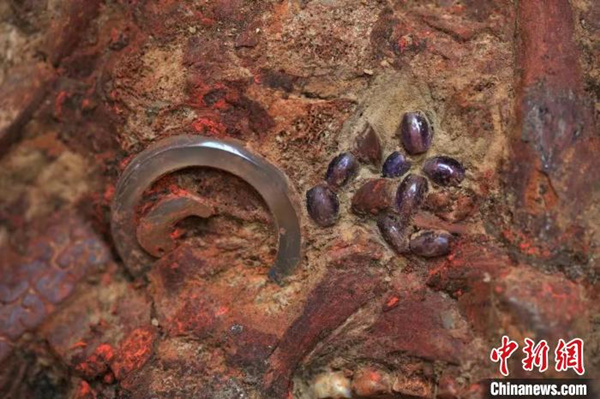

A tomb of an upper-class female from the late Spring and Autumn Period (770-476 BC) has been excavated at the Taosibei cemetery site in Xiangfen county of North China's Shanxi province. The owner of the tomb was a 30-year-old pregnant woman, with the bones of an 8-month fetus found in her womb, the Shanxi Provincial Institute of Archaeology announced Tuesday.
This tomb, 6.5 meters long, 5.4 meters wide and 9.8 meters deep, was paved with stones which could only be used in tombs of the nobility in ancient China. As the tomb also contained a collection of five bronze ding vessels, archaeologists believed this woman was from an upper-class family.
Wooden burial utensils in the tomb were already rotten. Additionally, 134 pieces (sets) of other funerary objects have been unearthed, most of them copper ware, as well as others made of lead, tin, jade and clay.
Early in 2014 and 2015, archaeologists found 1,283 tombs here, spanning a range of around 500 years. According to Wang Jingyan, who is in charge of this archaeological project, the Taosibei site is one of the few large-scale cemeteries in Shanxi province.